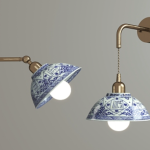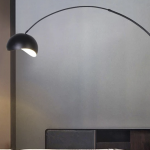
Introduction
The use of spheres of light is not a new concept. From ancient times, humans were fascinated by the sun and the moon, and they worshiped those celestial bodies. With the advent of science and technology, we learned that light is not just an object of worship but a phenomenon that we can control and use to our advantage. Spheres of light are one such method that we have developed to harness this powerful energy source. In this article, we will explore the many ways in which spheres of light are being used in various fields and how they are changing the way we perceive the world around us.
Section 1: How Spheres of Light Work
Spheres of light work through a process called electroluminescence. This process involves the conversion of electrical energy into light. When an electric current is passed through certain materials, such as gases or semiconductors, it causes these materials to emit light. The color of the light depends on the type of material used and the amount of energy passed through it.
Spheres of light are created by enclosing a gas or a semiconductor material in a sphere-shaped container that is made of a translucent material such as glass or plastic. When an electric current is passed through the gas or semiconductor material, it emits light, and the sphere-shaped container diffuses the light in all directions, creating a spherical glow of light.
Section 1.1: Types of Spheres of Light
There are several types of spheres of light, depending on the type of material used, the color of the light emitted, and the application for which they are used. Some of the most common types of spheres of light are:
- LED spheres
- Glowing orbs
- Plasma spheres
- Holographic spheres
Each type of sphere of light has its unique features and benefits, and they are commonly used in different fields such as entertainment, art, and science.
Section 2: Applications of Spheres of Light
Spheres of light are used in various fields such as entertainment, art, science, and technology. They are not only aesthetically pleasing but also serve practical purposes in different applications.
Section 2.1: Entertainment
Spheres of light are commonly used in entertainment events such as concerts, festivals, and parties. They add a unique ambiance and create an immersive experience for the audience. LED spheres, for example, can be programmed to produce different colors and patterns, creating a stunning visual display that is synchronized with music and dance performances.
Section 2.2: Art
Spheres of light are also used in art installations and exhibitions. Artists use spheres of light to create mesmerizing and interactive installations that engage the audience’s senses. Holographic spheres, for example, create stunning 3D light sculptures that appear to float in mid-air, creating a surreal experience for the viewer.
Section 2.3: Science and Technology
Spheres of light are used in science and technology to study different phenomena and develop new technologies. Plasma spheres, for example, are used in plasma physics research to study the behavior of plasma. LED spheres are used in automotive lighting to improve visibility and safety on the road.






